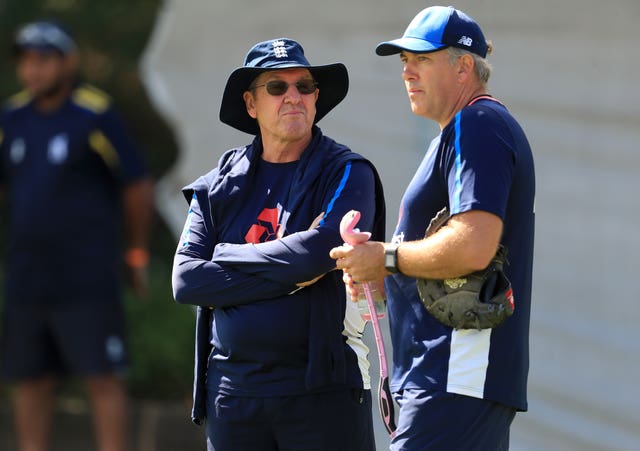New England coach Chris Silverwood in profile
Silverwood is just the second Englishman to take sole charge of the national side since 1999.

It is no small detail that Chris Silverwood was declared “the standout candidate” in a field where one of his rivals to become England head coach had presided over India’s 2011 World Cup win.
Not only had Gary Kirsten deftly handled the suffocating pressure of more than a billion people by giving them the trophy they coveted most, the following year he masterminded South Africa’s rise to the top of the Test rankings.
While Kirsten may or may not have had some apprehension about England’s unrelenting schedule, many assumed it was a foregone conclusion he would be handed the keys to the kingdom when he emerged as a contender to replace Trevor Bayliss.
However, he and a number of other high-profile nominees were pipped to the post by a determined Yorkshireman, who becomes just the second Englishman to take sole charge of the national side since 1999.
Upon the announcement he would be promoted after two years as the side’s fast bowling coach, another description of Silverwood from England and Wales Cricket Board managing director Ashley Giles was instructive.
“Ultimately, his highest quality is that he is a winner and that will be an important part of the job as we look to strive to become the most respected team in the world across all formats,” Giles said.
“Chris was the standout candidate. I believe he is what we need to take our international teams forward.”
Try finding anyone at Essex who would disagree with those sentiments. Silverwood spent only two seasons in full-time charge at Chelmsford and yet the progress on his watch was remarkable.
Having edged out former Australia and South Africa coach Micky Arthur among others to the job, Silverwood got Essex promoted in his first season before ushering them to a first County Championship title in 25 years in 2017.
England soon came calling, and it is clear he made a favourable impression as part of Bayliss’ backroom staff, with Giles praising “the ultimate respect” he has from the players that have worked with him.
Born in Pontefract on March 5, 1975, Silverwood came to prominence as a fast-medium pace bowler as he embarked upon a professional career with Yorkshire, making his debut for the club as a teenager in 1993.
England recognition followed on the tour of Zimbabwe in 1996/97 but it would be another three years before he got another look in, ultimately settling with six Test and seven one-day international appearances.
Bob Cottam, one of his predecessors as England bowling coach, once remarked Silverwood was faster than fearsome South African paceman Allan Donald while he possessed an accurate bouncer and was able to extract plenty of seam movement at Headingley.
He moved on to Middlesex in 2006 but after an encouraging first season, a loss of form and injuries led to his release three years later.
Silverwood ended his playing career in Zimbabwe with Mashonaland Eagles before dipping his toes into coaching with Essex as their bowling coach in 2010, putting him on the path towards England’s top job nearly a decade later.

Having underpinned their title win with a largely homegrown side, the structures he put in place have seen continued success, with Essex completing a championship and Vitality Blast double this year.
It is hoped he has the same Midas touch with England.





